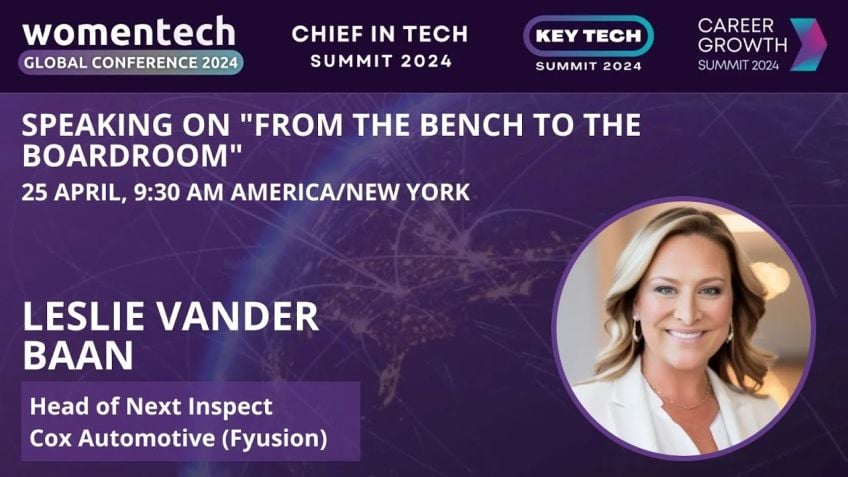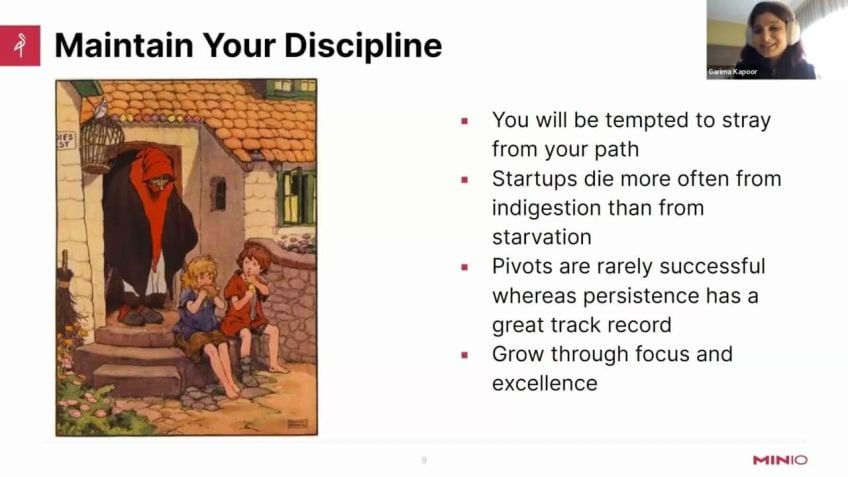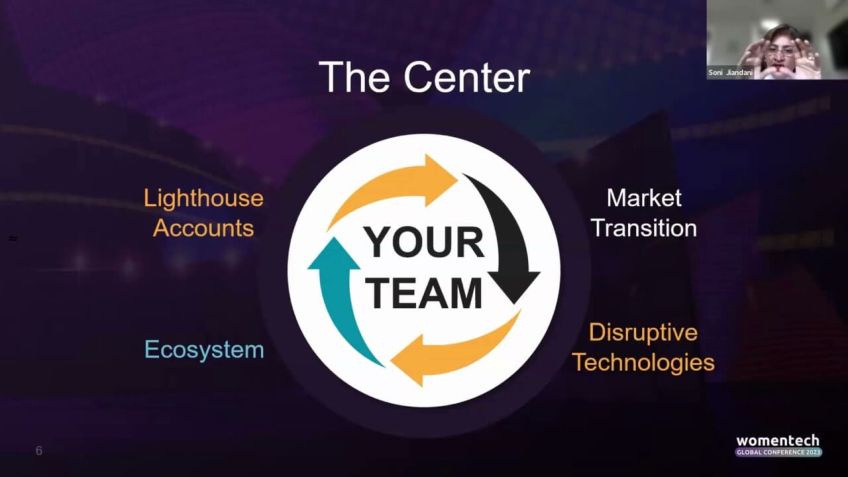Leveraging Company Culture for Fast Startup Scaling by Leah Edwards
The Power of Culture in Tech: A Conversation With Serial Co-founder and CEO
In our rapidly evolving tech world, company culture continuously plays a pivotal role in success. I had the unique opportunity to experience the wisdom of a serial co-founder investor and coach who has mastered the art of ushering entrepreneurial dreams to life. Joining us in this enriching conversation was Mina, CEO and founder of Ketos. Their journey, experiences, and insights—dovetailed with my own learnings—made for an enlightening dialogue that highlighted the power of culture in the tech space.
Why is Company Culture Crucial in Tech?
"Culture... helps move the organization together faster if you're very clear about the direction of the company." said our serial co-founder. The tech sector is uniquely demanding and can sometimes induce exhaustion, with its ceaseless pull in countless directions. Despite the thrill of innovation, developers, entrepreneurs, and leaders alike often feel over-stretched. A robust, well-defined culture combats this problem effectively. When team members can trust the course without needing micromanagement, organizations move forward faster.
Mina's Insights on Culture at Ketos
Calling for a mindset shift, Mina underscored the need for CEOs and founders to think about companies as "movements rather than ideas." Culture has been the bedrock of success for Ketos—a mission-driven company making waves in the less glamorous but crucial tech space of water management.
- Internal customers: Mina proposed the concept of considering company employees as 'internal customers.' This approach radically alters the perspective toward value creation, focusing efforts on empowering the employees.
- Creating value-based teams: Embedding transparency, respect, and ownership in every area of the organization - from decision-making to the formation of new initiatives - has been essential to their success.
- Representative leadership: Actions often speak louder than words. As a solo woman founder, Mina believes the leadership you choose signals your culture. This belief was embodied in Ketos having a 100% women-initially board, driving inclusivity and diversity from the top.
- Encouraging a testing mindset: The team openly applauds those who experiment with projects that may not work out, reinforcing the idea that not all initiatives will be the final outcome. This perspective encourages a fear-free and cost-effective experimentation climate, fostering speedy innovation.
Differential Metrics: Reflecting Cultural Strength
Our co-founder proposed a revolutionary concept—rewarding team members who, after testing a new idea, decide it's not working and shut it down promptly. Recognizing such actions publicly sends a potent message that the organization values learning and creativity, encouraging everyone to bring forth their brilliance.
The Takeaway
Culture may begin with vision and mission conversations, but it truly materialises in actions. By implementing and reinforcing core cultural values through daily activities, organisations can unlock significant potential for growth, innovation, and development. The lessons shared by our two panelists provide a blueprint for incorporating a powerful culture into your own organisation—enabling it to wonder and conquer in the tech space.
Video Transcription
First of all, um I have been a serial co-founder of numerous software companies and then became an investor, a university lecturer and a coach.And primarily the reason that I'm doing those three things is to give back and to really try to shortcut other people's success in the tech sector by using lessons that I've learned and hopefully making people happier along the way. And so one of the reasons that I think that culture is so key is that the chief complaint that my coaching clients have is that they are just exhausted that they feel pulled into, you know, multiple in multiple ways. And although they may be excited because they may have started a company or they've been given a big promotion in another company, the excitement is definitely um sort of a counterbalanced against doing too much. And so one of the things if you build a really strong culture, then you can trust other people to do as you would be directing them to do without you having to get into the weeds with every single person. So it really helps to move the organization together faster if you're very clear about the culture and the direction of the company. And so I want to first let Mina give a talk because Mina is currently doing this. She's the founder and Ceo Ketos.
And so Mina, how, what, what has been important about creating a strong culture and making your organization able to grow so
fast? Absolutely. Uh And thank you for this opportunity, Lee, I really appreciate you pulling uh me into the fold here and it's just incredible seeing um just the, the wealth of brain trust in this space. Uh And, and just overall really, really exciting day, I think the key part when you're forming a company or team, regardless if you're forming a, a team in a larger organization as in uh with the mindset of an entrepreneur, or if you're an entrepreneur and sort of on your own founder journey within a company, I think the key is to really embed your value system into the DNA of the company itself.
So really looking at the fabric of what does your team entail? What are your values? What are your, what is your core mission statement? What is your purpose of what you want to achieve together? And I think that if each CEO or each founder thinks about it as a movement rather than an idea, I think we can really change the outcome of what we want from our team for, you know, and, and personally, for me in my journey, for the sector, I'm in, I mean, we're making a difference in water, which is a very challenging sector and it's not the sector that actually pays, you know, a lot compared to the whatsapp and the, the really sort of, you know, sexy type of sass players that everyone wants to go work for.
And so I think what really separates a mission driven company like us and for us to hyper scale with the best of talent and to retain that talent, I would say culture has been the pillar for our company.
And is there um a way that you're able to trust that everybody who's now recruiting into the organization is also looking for the same culture fit as you did with your key hires in the early days.
Yeah, and that's a great question. And I think that, you know, that responsibility actually, I believe falls on me as a, as a founder first and then sort of, you know, how you again go about instilling it within your leadership team. So, you know, first one of the first things is actually even getting your board on, on board with your plan and really looking at, OK, as a board member, what do you think you need to know about Quito's, what is most important to Quito's, what is most important to Quito's team and Quito's employees?
Are you aligned on that front and really making sure that every hiring manager, regardless of where you're in the organization, you understand the key attributes that we want to bring in as um any member because it's, it's very tightly knit when you're 20 people. What gets really difficult is how you maintain that culture when 50 then you're getting into that 102 100 where you as the founder cannot have, you know, a one on one with every single employee every week or every month. And, but still maintaining that culture and scaling is so pivotal, especially in the last couple of years as you're getting more and more distributed, how do you make sure that culture does not escape people's minds? Um And kind of making sure that, you know, that's front and center and I think I have been putting a lot of thought into it and, you know, I'm sure there's so much more to learn, but it's every single day making one step towards that and at a very basic level, uh you know, really thinking about diversity.
Is that important to us? Absolutely. I don't think for me de I is, you know, not just a program for us, it's who we are, it's what we stand for and who we are as a company and, and how you embed that. So if you're, if you're a hiring manager and you are not thinking about it, then you're fundamentally not a right fit to even hire a person. I think that's how you, you know, sort of almost enforce it within your own team.
Oh, thank you so much. I um I don't know how many of you who are tuning into this session have ever heard of Ketos. But it's really been amazing to see what Mina has done if you would think of a solo founder in uh hardware and A I company um in the water space, like, you know, you went after the Super challenge. And so uh it's amazing um how much you have been able to scale the company. And so um I really appreciate you sharing your practical uh tips with everybody. Um One of the things I personally recommend that people try to embed in any culture that you where you really want to move fast. And that is to have the value of learning to be part of the culture. And there's two real benefits to that. One is fear is your enemy. And a lot of people fear failure. They fear that they may not get promoted or they might look bad in front of other people. And you want to try to eliminate fear. People bring their best selves forward when they're not afraid. And so if you value learning, then really nothing can be a failure. Everything can be a test.
And one of the things real practical thing you can do if you want to demonstrate that you value learning is to very publicly give rewards to people who cost effectively, test out a new idea. And if it isn't really working, they shut it down. And so instead of saying, oh, that was a failed test. That was a failed initiative. Someone had if you very publicly reward someone for having gone out on a limb, but done it as a test. So they didn't waste a lot of resources and then they judged it to not be a good initiative. The fact that they shut it down if you very publicly reward that that is a really good way to demonstrate that you are a culture that values learning that you want people to be creative, bring new ideas, don't wait for someone else to have ideas and then just jump on board to do that if you want to scale a company fast or even if you're in a big company and you just have a team to manage.
If you wanted to move fast, you really need everybody to bring their brilliance forward. You're, you're spending a lot of effort to hire the best and brightest. You don't want them to bring sort of subpar intelligence, subpar ideas into your organization. So I really encourage you to think of ways to demonstrate that you value learning. Nina do you have if you want to jump in on this, feel free?
Yeah, there's um I mean, I think there's a plethora of examples of that for, for, at least for us, I think because one for starters, um you know, we, as Leah mentioned were a hardware combination with A I and, and so the way you think about it is we're robotics with IOT with data science, with A I with material science.
So it's so interdisciplinary which means people are coming from very different backgrounds, very different expertise. And what that means is not always are all ideas going to gel and not all ideas are going to be the final outcome. And we actually just a small tidbit in your weekly, say Scrum or your in operations meeting or your monthly, all hands, we actually call out and celebrate with a round of applause for someone who actually experimented an idea that didn't work out. Um but they failed fast. And I, and we actually calculate how quickly they failed because, and we don't even call it as fail. We actually call it as how quickly did you prototype something because that means you were, you're taking us one step closer to the next innovation for what potentially we could patent, we could have an IP. And so it's almost the mindset of your creating net new IP capital for the company. And what's that worth to you? And so I think when you start shifting that value creation from an experimentation towards a failure outcome to creation of you're creating that new IP for the company, I think it, it really sort of encourages people to, you know, I'm, I don't have to watch my back.
I know I can fail. And you know, make stakes and that's ok, you know, cost effectively and think through under boundaries of what you want, but really rewarding that and celebrating it. I'm a big believer in celebrating. We celebrate everything every small little success. Um And, and the best way I have always felt less pressure on failure because I, I feel like a lot of CEO S take so much pressure and it burns them out is really looking at it as success is something that actually happened as per your planned outcome. And you know, failure is just another terminology for an outcome that didn't come out as per your plan. And when you, when you just look at it as that junction, it really takes off that pressure, you, you can execute so much more efficiently and actually constructively with a much more positive energy that your entire team feeds on you from.
Oh excellent. I love that you do that and I love that you also mentioned measuring how much time it took for someone to do something. Um This is something I've observed quite a bit is that organizations that scale fast, shut things down fast or get alignment on a new direction, fast. And so one of the things that bogs people down is if they don't have very good decision making processes. So I like cultures that are very clear about setting objectives very clearly um measuring what's happening. Like if you're running a test and to in the beginning before you actually start the test to say, what would be the definition of success? What would be the definition of this is not something we should move forward. And so if you make a very clear sort of hypothesis in the beginning of what, what you hope to get from a new initiative, and you're very clear about this is either going to be a unanimous decision of the team or this is going to be a majority decision of the team or if the data doesn't hit a certain metric, then that's an automatic go, no, go, whatever you do, you want to set up the decision making ahead of time, it actually really speeds up the, the way a team can work together because otherwise everybody wants to defer the decision to the next meeting, to the next meeting.
Um because it's almost never 100% obvious. What's the answer to do if you're doing anything innovative, it's always um somewhat subjective. You try to make it a little more objective by in the beginning deciding what is our process and that helps you move fast and,
and very beautifully. Sadly, and, and part of that is also defining it in your culture. Uh What I mean by that is in, in our culture, I think for me, one of the most important things and I break it into three pieces like like transparency, you have to have transparency in all that you do. And then that gets tied into respect of, you know, respecting each other's both skills as well as work. And third comes down to really ownership um being able to own if it works, if it doesn't work whatever that is. But really taking that ownership, which ties into decision making. So I really think about respect transparency and ownership in, in a way that when you bring that together, you truly then create the value based team that you want. Because one of the things I've always, you know, felt that I never received in my previous start ups that I worked and was always something I've struggled. And I've also seen this in other start ups is, you know, you focus so much on your customers um empowering your customers, enabling your customers all start ups, talk about that, but you don't talk about why is it that your own employees are not your internal customers?
Why is it that your own employees, how are you creating value for your own employees versus just thinking about value creation for, you know, um your customers? And I think the more people internally start looking at that, they're going to look at talent and you know, the value of the culture, they create very, very differently and you're gonna scale um with a lot less issues. Um and, and minimally, you know, with, with the pain that's in the market.
I am just shocked at how quickly time is going. So I want to encourage anybody on the call. If you want to um have any questions answered, please feel free to let us know. Um you know, one thing, both Mina and I wanted to make sure that you take away from the conversation is culture. You know, often is determined by people getting together for offsides, talking about mission and vision and that is wonderful. It's great to have those conversations.
However, if your actions do not fully align with what you've said, your actions are going to trump the words. And so you've got to make sure and this is why we're giving you really practical examples. Um You know, one of the things mini was talking about respect for others. I often encourage team members to call out like who, who are one or more team members who actually made you individually successful. You know, and I love to hear people, you know, call out and say that to each other that actually fosters a little bit more of an understanding that we're stronger collectively than any one of us individually would be. And that's a very practical way to um you know, build your culture and really make it true in action.
Now, that's an awesome example. And you know, one example if I may share and I see that we're like 1 20 seconds left and uh in this talk. And I think, uh you know, as a, as a woman founder solo woman founder and women leader. Uh CEO really wanting to encourage more women in engineering, more women in start ups. I really think that, you know, having the right representation in your leadership is also a signal to what you want the team to be. And I've taken that to heart in a way that in, at Quito's, we've actually had originally a women, 100% women board, which is very rare for a hard tag. Um you know, deep tech type of start up and hardware. And eventually we, you know, um I joke about it saying we've included um you know, male members for diversity and, and, you know, we, we sort of um laugh about it, not bored, but I think in general, you know, all jokes aside, I think it's important to be representative. Your actions need to speak louder than your words if anything. And at that point, you don't need to sit and put a memorandum of your culture. At that point, the culture itself evolves and it's fluid enough because your team is acting every day based on it.
Well, thank you so much. I mean, they might be letting us run over here a minute or two. So I'm just gonna check just to confirm if there's any uh questions that we didn't get to um lead to. But, you know, really appreciate people tuning into this session. Ketos is always hiring. So if you know, of, of amazing women or for diversity. Anyone else who's interested in? Very cool jobs. Check out ketos.co and I'm a coach if you need help in this type of area to build your organization
now. Thank you so much, Leah. I appreciate the opportunity to be part of the women in tech and thank you Suzie for your comments. Um Very much appreciate you um being actively listening and um yeah, feel free to reach out to me. My email address is Nina at quito.co and uh happy to also chat on linkedin and um be able to share any lessons or bruises here along the way.
Well, thank you for joining um everyone and I look forward to continuing with this incredible um conference. It's so wonderful to see so many really talented women in all areas of tech.
Take care everyone. Thank you.





